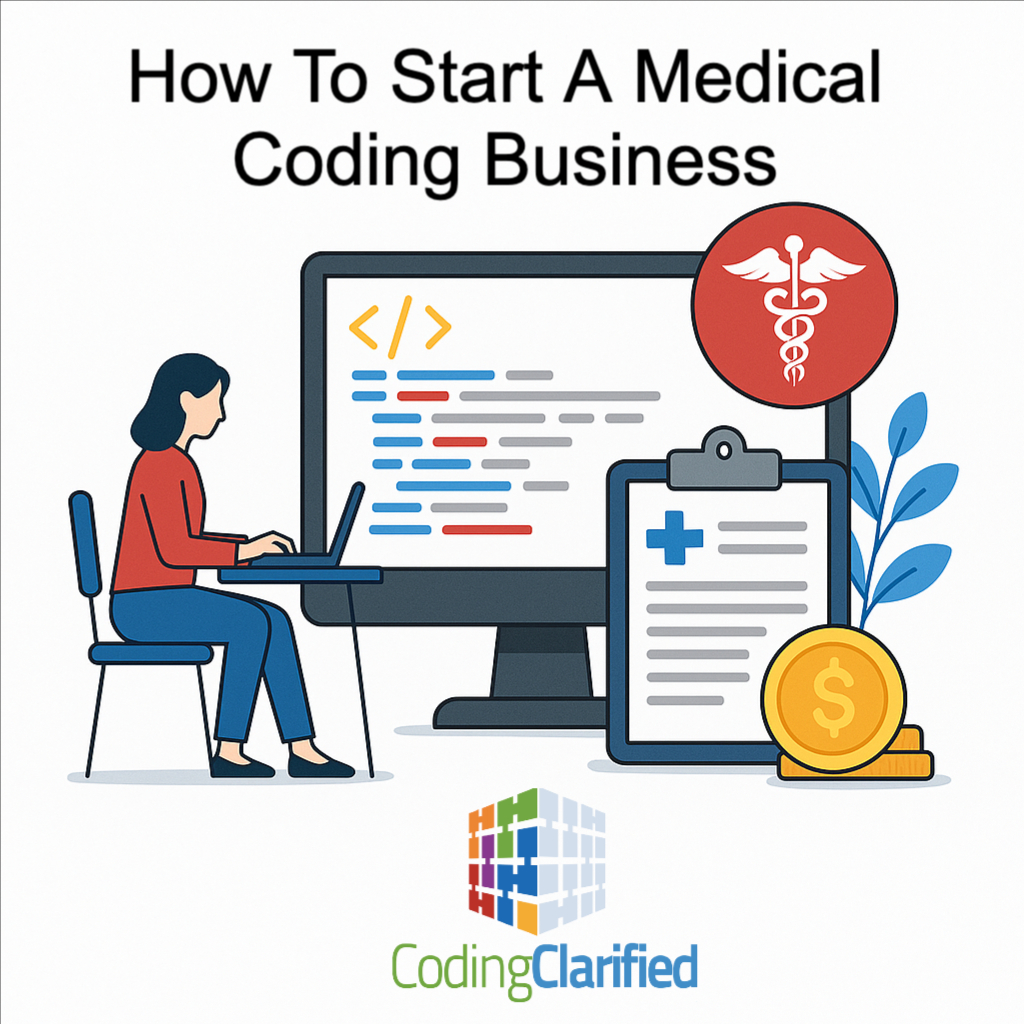How to Start a Medical Coding Business: A Step-by-Step Guide
Starting a medical coding business can be a lucrative and fulfilling opportunity for experienced coders who want more independence and flexibility. As the healthcare industry continues to expand and coding demands increase, medical providers often seek reliable outsourcing solutions to manage their coding needs. If you’re ready to take the leap into entrepreneurship, here’s a comprehensive guide that explains how to start a medical coding business.
1. Evaluate Your Skills and Experience
Before launching your own business, make sure you have:
-
A recognized certification such as CPC, CCS, or CCS-P
-
Several years of hands-on coding experience
-
Familiarity with EHR systems and coding software
-
Knowledge of HIPAA compliance and industry regulations
If you lack experience in business operations or client management, consider taking a small business or healthcare administration course.
Get Medical Coding Training from Coding Clarified https://codingclarified.com/mastering-online-medical-coding-training/
2. Choose Your Business Model
You can structure your medical coding business in several ways:
-
Independent contractor: Offer coding services on a freelance basis
-
Small agency: Hire a team of coders and take on multiple clients
-
Niche focus: Specialize in specific areas like radiology, HCC, or surgery
Define your services clearly—such as CPT/ICD-10 coding, auditing, claims review, or prior authorizations. As your team grows, integrating people analytics software can help track coder performance, optimize workforce planning, and support long-term scalability.
3. Register Your Business
Follow these steps to make your business official:
-
Choose a business name and verify availability
-
Register your business entity (LLC, sole proprietorship, etc.)
-
Apply for an EIN (Employer Identification Number) with the IRS
-
Obtain any required business licenses or permits
It’s also wise to consult an accountant and legal advisor to set up your financial and legal structure properly.
However, an LLC is the most commonly chosen business structure for startups, as it provides personal asset protection by separating your personal assets from business liabilities. It also allows you to act as your own registered agent , offering additional control and flexibility in managing your business.
4. Invest in Tools and Software
To run your business efficiently, you’ll need:
-
Secure medical coding software
-
Access to coding references (e.g., CPT, ICD-10-CM, HCPCS books)
-
HIPAA-compliant communication tools and data storage
-
Professional email and invoicing systems
Many coders also use platforms like Availity, EncoderPro, or Practice Fusion to manage daily tasks.
AAPC Codify https://www.aapc.com/codes/
5. Develop a Marketing Strategy
Start building your client base with these tactics:
-
Create a professional website with your service offerings
-
Network through LinkedIn and industry groups
-
Join local medical associations and attend coding conferences
-
Reach out to clinics, physicians, and billing services
Don’t underestimate the power of referrals—build strong relationships with your initial clients for long-term success.
Consider designing a professional business card to leave with potential clients at networking events and conferences, ensuring your contact information is easily accessible.
6. Set Your Pricing and Contracts
Decide whether to charge hourly, per chart, or on a project basis. Be transparent and competitive with pricing while valuing your expertise.
Use legally sound contracts that outline:
-
Scope of work
-
Payment terms
-
Confidentiality and compliance requirements
-
Termination clauses
7. Stay Compliant and Continue Learning
As a medical coding business owner, you are responsible for:
-
Ensuring all coding is accurate and compliant
-
Keeping up with coding updates and industry changes
-
Staying current on HIPAA regulations
-
Taking CEUs (continuing education units) to maintain certification
How to Become a Medical Coding Auditorhttps://codingclarified.com/how-to-become-a-medical-coding-auditor/
Launching a medical coding business takes planning, commitment, and a mix of technical and entrepreneurial skills. But with the right foundation, it can offer both financial rewards and personal satisfaction. Whether you’re a solo coder or plan to build a team, there’s never been a better time to carve out your niche in the healthcare coding world. Good luck!

